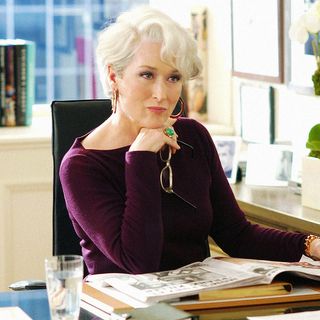When does middle age start? Asking for a friend … who was recently told by a doctor that middle age starts at 35, which has my friend worried she’s approaching the decline of her sex appeal, hot flashes, and maybe even surf lessons much more rapidly than she is prepared for.
The doctor seemed to be going off the results of a 2010 public survey, which pegs middle age as starting at 35. The survey of Britons reached this conclusion by asking when youth ends and old age begins. The average answer was 35 and 58 respectively, with the intervening 23 years defaulting as ‘middle age.’
It’s true that in your 30s you start losing lean muscle mass and build up fat deposits, especially around the center of the body; skin becomes less elastic, metabolism declines, and bone density starts to decrease. In other words, you stop growing and start aging. But does this segue really herald middle age?
Related on The Swaddle:
What Does It Mean to Look Your Age?
As it happens, despite the surety of the public and one (questionable) doctor, middle age is notoriously difficult to define. It’s more easily defined by what it isn’t — middle age isn’t old age, which medically speaking starts at 65. But as lifespans lengthen, thanks to better health, medical care, and scientific advances, many clinicians and researchers are calling for their field’s conventional demarcation of old age to change — to start at 75. But if old age is defined as 75 going forward — does that mean middle age expands (say, from 35 to 75) or delays? (say, 50 to 75).
According to a 2015 population study, this shift in the start-date of old age means middle age lasts longer. Unfortunately, the study — for a lot of very valid, but complicated, statistical reasons — did not pinpoint the age at which middle age begins. It also did not pinpoint 75, or any age, as the age at which old age begins. Instead, it suggests defining old age beginning when a person has an estimated 10 to 15 years of life left. This makes old age highly subjective and individualized — and therefore, of course, middle age as well.
What the study did do, however, was determine a median age — for Germany’s population only, as a case study. Depending on the inclusion of certain statistical variables, Germany’s median age is anywhere from 45.6 to 52.6 years. Which makes it completely possible that for some people (definitely not for my friend, though), middle age could start at 35.
But perhaps instead of trying to pin down when middle age starts, we’d be better off asking — why are we so obsessed with establishing a hard-and-fast cut off on youth? If research has taught us anything, it’s that age is just a number — feeling young at heart (or at least younger than your age) really might slow down aging, or at least reflect it. So perhaps my friend should focus less on her impending 35th birthday, and more on the fact that she still feels, well, sexy (and not yet ready for surf lessons).




